Lecture programme Friday 8 March
The lectures are in English unless stated otherwise. The lecture programme is subject to change.
Theater 1
Theater 2
Biobased Acceleration beyond Wood
The use of wood and other biobased building materials can make a significant contribution to the enormous demand for sustainable homes. With 4 top biobased (timber) experts, this lecture programme focuses on how new carbon regulations (path to net zero and ParishProof with timber), parametric engineering and design, new engineered timberproducts and -systems and industrial production possibilities will accelerate these developments.
By: PEFC
Moderator: Atto Harsta
Natural textiles & dyes (part 1)
Many (young) designers are looking for clean alternatives to the highly polluting clothing industry and are following completely new paths. Eight of them will present their innovative projects and working methods in the field of producing or dyeing sustainable textiles, or textiles with special properties.
Moderator: David Heldt
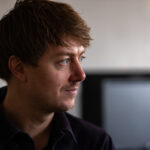
10:45 – 11:15
Timo Broersen, Finch Buildings
Finch Buildings: 10 years modular timber buildings
Timo Broersen, architect and project manager at Finch Buildings, has had a passion for building from an early age. He started with K’nex as a small child and during his studies he manufactured wooden furniture. He graduated from TU Delft in 2016 with a wooden residential building. After working for five years at an architectural firm, he switched to Finch in 2022 to make a greater impact on circular and sustainable construction.
At Finch Buildings, Timo mainly focuses on the role of system pilot. In this position he facilitates developers, architects and builders in realizing sustainable projects using the Finch Buildings construction system.
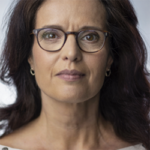
11:00 – 11:30
Anne Boermans, Zeefier
Zeefier textile dyes made from seaweeds
Anne Boermans is business founder and CEO of Zeefier, a start-up that produces textile dyes for the industry, made from seaweed and its waste streams. Zeefier is founded in 2020 together with Nienke Hoogvliet, the creative director. Zeefier wants to change the textile industry to become a more sustainable one. Seaweed is vastly available and offers many benefits, making it a good solution towards climate change, all while their textile dyes meet the industry standard. Anne has a background in management in different sectors and uses her expertise to bring Zeefiers seaweed dyes to the market.
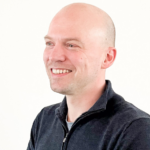
11:20 – 11:50
Rueben Kieffer, Boom
Building with Timber: Meeting Client Demands for Technical and Financial Insights
Rueben, an Economics and History (International Relations) graduate, brings vast experience as a project manager and consultant in area and real estate development, exploring sustainable and innovative business solutions. As Director of Business and Strategic Partnerships at Boom, his focus encompasses sustainable business development, market research, proposition development, and business model innovation in Timber Construction and Real Estate development.
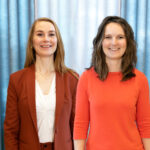
11:35 – 12:05
Linda van den Akker & Rinkje van der Veen, Royal Vriesco | A House of Happiness
From Field to Fabric: the development of our 100% bio-based curtain collection
Rinkje van der Veen is designer and product developer at Royal Vriesco | A House of Happiness. Royal Vriesco’s mission is to make the world more beautiful with sustainable curtains. With the largest collection of recycled and circular curtains in Europe, they now expand their portfolio with a 100% bio-based curtain collection. With fabrics from wool, linen, jute, bamboo and cotton. In this lecture Rinkje, together with Linda van den Akker, takes you through the process of creating this bio-based collection, from the initial idea to the commercial presentation. This includes zooming in on the fabrics made from wool and the locally produced and processed linen fabrics.
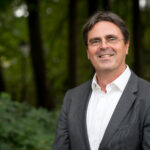
11:55 – 12:10
Maarten Willemen, PEFC
Bouwen met hout uit duurzaam beheerde bossen is de norm (NL)
Maarten Willemen is chairman of PEFC Netherlands, the association of companies that use certified sustainable wood. He has a lot of experience in the wood chain close to the forest: wood harvesting, the trade in ’round wood’ and its processing. He is convinced that wood is the most sustainable raw material we know, provided that the forests from which this wood comes are also sustainably managed. Under that condition, wood has been the precursor for other biobased raw materials for centuries, and is therefore part of the solution.
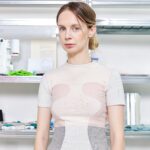
12:25 – 12:55
Rosie Broadhead, Skin Series
Therapeutic Textiles, rethinking material and skin interactions with probiotics, algae and vitamin treatments.
Rosie Broadhead is a textile researcher specialising in therapeutic materials for fashion industry applications. Founder of material innovation platform SKIN SERIES, and co-founder of biotech company PHIOME. As a Textile Scientist at Ghent University, Rosie’s research focused on the interaction between skin and clothing, developing collaborations between fashion, the skin microbiome biome and its environment. Rosie is a graduate of Central Saint Martins’ MA ‘Material Futures’ course in 2019 and has a background as a designer and Head of Sustainability at sportswear brand Perfect Moment, Research & Development at Rapha and design at Thom Browne & Aitor Throup. This research into the future of fashion has resulted in peer review papers and exhibitions during Salone del Mobile Milano, Dutch Design Week, London Design Festival and publications in Forbes, British Vogue, i-D and The New York Times.
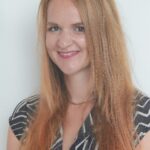
12:10 – 12:40
Laetitia Nossek, Dutch Green Building Council (DGBC)
Carbon data: What can we expect, why is it important and how do I prepare for this?
Laetitia Nossek (1990) is programme manager at Dutch Green Building Council (DGBC). In this position she is responsible for the Building Life programme.
Laetitia studied Future Planet Studies at the University of Amsterdam with a major in Business Administration and a master’s degree in Business Administration Strategy. She worked as a consultant on various sustainability projects, Life Cycle Assessment calculations and sustainability reporting (Global Reporting Initiative). Later she focused more on strategy and innovation assignments, always with a sustainable focus.
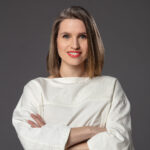
13:00 – 13:30
Anett Papp
Naturing_Matter in Motion: The intersection of plant nature and the textile-creating system. The story of a collaboration.
Textile and structure designer. She graduated as a woven fabric designer and wrote her Doctoral thesis in collaboration with plant textiles. Her main areas of interest are textile Structures with living materials and growing design. The goals of her professional works are to develop a protocol that encourages self-expression and self-patterning techniques along plant materials as intended by the creator.
For years she was Head of Faculty at the Budapest Metropolitan University in Craftsmanships and Object Culture. She collaborates with colleagues in the natural sciences. She believes that disciplines can work in synergy with each other to create innovative solutions.
Her work has been shown at the London Design Festival, Milan Design Week, and Dutch Design Week.
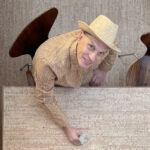
12:45 – 13:15
Alex de Rijke, TU Delft
The Architecture of Health – Maggie’s Oldham
Professor Alex de Rijke is a founding Director of dRMM, having established the practice in 1995 with Philip Marsh and Sadie Morgan. He is a design champion, responsible for the concept, construction and delivery of dRMM’s timber projects including Sliding House, Kingsdale School, WorkStack, Tower of Love, Endless Stair, WoodBlock House, Maggie’s Oldham, and the Stirling Prize-winning Hastings Pier.
De Rijke was appointed as the first ever Professor of Timber Architecture at TU Delft in 2023 and has extensive teaching experience at various institutions including London South Bank University, the Düsseldorf School of Architecture, and the Architectural Association. He was Dean of Architecture at the Royal College of Art from 2011-2015, instigating a new culture of making and prototyping.
Through his championing of the need to build using timber and low carbon materials, dRMM were the first UK architecture practice to make public buildings in CLT and have since the 1990s consistently been able to innovate and improve sustainable design through real projects.
Break Lecture
By: imat-uve
Break
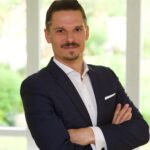
13:20 – 13:50
Patrick Kirchler, imat-uve
Ways to develop sustainable interior materials for the automotive industry
imat is a globally accredited testing service provider specialized in validation and consulting in the automotive industry with about 150 employees and locations in Germany, USA, Mexico, South Africa, and China.
Patrick Krichler started as Sustainability Manager at the company. Since June 2023 he is Head of Competence Center Sustainability.
Biophilic design
The Biophilic Design Academy is a knowledge platform that aims to increase awareness of designs with nature and teach more designers and architects to work with the principles of biophilic design. To create greater awareness for the health of people, animals and the planet.
By: Biophilic Design Academy
Moderator: Lianne Bongers
NATURAL TEXTILES & DYES (part 2)
The lecture series about alternatives to the polluting dyes and fabric industry continues.
Moderator: David Heldt
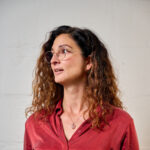
14:00 – 14:30
Liselotte Flu, Interface
Biophilic Design – De natuur als mentor (NL)
Liselotte is an interior design professional with 15+ years of experience in design, communication and project management. She regularly gives presentations on Biophilic Design. As a Concept Designer at Interface, Liselotte Flu helps customers with inspiration, advice, customization and floor designs. In addition to sustainability, Biophilic Design plays an important role in the work, because it positively influences people’s well-being. And what could be better than being able to contribute to that?
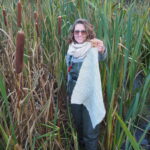
14:15 – 14:45
Iris Veentjer, Studio i Focus
Nieuwe regeneratieve textielketen (NL)
Iris Veentjer is the owner of Studio i Focus, a design studio for innovative materials research and experimental design. She is involved in freelance projects for various companies and institutions and works on her projects such as Bakkie Trots and RietGoed. With the projects, Iris hopes to not only offer a beautiful product, but above all to contribute to the social discussion about sustainability, climate change, social awareness and regenerative working.
With one of the current projects, RietGoed, she is researching and developing the possibility of making textiles from the reed cigar plant (cattail). An innovative process to contribute to natural soil recovery, combating soil subsidence and preventing greenhouse gases from the peat meadow area.
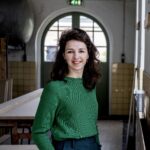
14:35 – 15:05
Renske Bongers, Spaces for Well Being
Biophilic Design & Welzijn (NL)
As an environmental psychologist and experience designer, Renske Bongers looks at the interaction between behavior, experience and the physical environment. Her perspective is always focused on people. How the environment affects us sensorially and what this does to our mental and emotional well-being. What happens to people, what do they need and what influence does the physical environment have?
In collaboration with designers, she creates places that contribute to the well-being of patients, clients and employees in healthcare. Spaces that provide meaning, give us the space to feel human again and stimulate a certain state of mind.
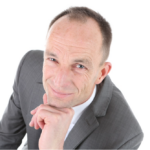
14:50 – 15:20
Folkert Fennema
From catfeed to catwalk
Folkert ‘s journey started as a product developer in the food industry. His curiosity and commitment led him to a realm where waste reduction and repurposing became his
hallmark.
His venture carved a niche in producing chromium and wastewater free salmon leather from discarded salmon skins a pioneering endeavour that epitomizes sustainability and creativity. Transforming these remnants into salmon leather was only the inception; with
partnering with an Italian tannery, the salmon leather underwent a metamorphosis, it became a colourful portfolio with impeccable finishes, thus becoming a coveted product within the fashion industry.
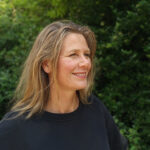
15:25 – 15:55
Liesbeth Bulk, Crush on Nature
Natuurbeleving (NL)
Liesbeth Bulk, born in the ‘green heart’, has always had a fascination with nature. Garden architecture seemed a logical choice, but structuring and directing, which characterize gardens, did not suit her. The art academy was the next step. A wonderful question from an Aboriginal lady gave direction to her thinking about our natural environment. Projects such as an organically growing garden for the elderly, in which she takes on a new role as a designer, to the large, circular Floating Nature panels that she now makes. She increasingly realizes that our relationship with nature is the key to a truly sustainable attitude. Not only as a consumer, but also as a designer and producer.
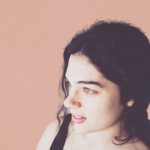
15:45 – 16:15
Olatz Pereda Bados, Miss Clazy
What if clay could be turned into anything you can (or cannot) imagine?
Olatz Pereda Bados is a ceramist, biodesigner, material researcher, and founder of Miss Clazy. Based in the Basque Country (Spain), she graduated in Creative Arts & Design from the University of the Basque Country where she also studied for a Master’s Degree in Ceramics: Art & Function. She graduated with a Master’s Degree in Art Therapy and Other Creative Therapies too and the Fabricademy Postgraduate at the Basque BioDesign Center, where she worked as a material researcher and developed her project “Lohial, from earth to textile”, which shows that we could use or even wear the clay under our feet.
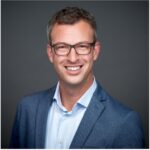
16:00 – 16:30
Pascal van Dort, Rockfon
Echo’s van de natuur: navigeren door de jungle van lawaai in interieurs door middel van biofilic acoustic design (NL)
As a Global Acoustics Ambassador, Pascal passionately advocates for a deeper understanding of the crucial role sound, sound and acoustics play in shaping environments. Dedicated to promoting awareness among architects, interior designers and building owners, he highlights the profound impact of these elements on people’s health, happiness and overall well-being. Pascal’s expertise is based on his educational background in building acoustics and an impressive 25-year career dedicated to advancing the field.
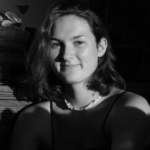
16:20 – 16:50
Julie Heij
The Grass Garment: the entire journey
Julie Heij is a Master’s student in Industrial Design at the University of Technology in Eindhoven. After completing her bachelor’s degree in Industrial Design at the TU/e in 2023, she started focusing on material design and textiles. For her, the complexity of the transition to a more sustainable future starts with the materials we design with. She believes that with the ever-accelerating development of technologies, we sometimes fail to realize or even forget our current designs’ impact on the world. She therefore tries not to put people at the centre of her designs, but nature and the climate are her number one priority.
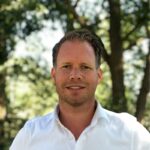
16:35 – 17:00
Bart Dijkman, Koninklijke Van Ginkel Groep
De levende natuur naar binnen, diverse voorbeelden van groentoepassingen (NL)
The Royal Ginkel Group is a modern, socially committed family business, founded in 1903. They want to contribute to the solution of the major social issues of today and the future with well-applied greenery. Climate change, quality of life, health and biodiversity, these are the major themes that can be tackled with green solutions. Ginkel
Group helps clients choose and apply green solutions. With advice, innovation and specialist knowledge of both technology and plants, they make the Netherlands more beautiful, more livable and more biodiverse.
DON’T MISS OUT AND GET YOUR TICKET NOW
We look forward to seeing you there! Can’t make it? You can also buy a livecast ticket to view the lectures live from the comfort of home.
DAY TICKET
€12.50*
A day full of inspiration
*) Buy your day tickets online with a 50% discount. Ticket at the door € 25. Ticket prices are excluding VAT.
- Entrance ticket voor 1 day
- Watch all lectures online
- Can review lectures later
- Digital exhibition catalogue (pdf)
- Printed exhibition catalogue worth € 10
PASSE-PARTOUT TICKET
€30*
If one day isn’t enough
*) Buy your passe-partout tickets online with 50% discount. Ticket at the door € 60. Ticket prices are excluding VAT.
- Entrance ticket voor 3 days
- Watch all lectures online
- Can review lectures later
- Digital exhibition catalogue (pdf)
- Printed exhibition catalogue worth € 10